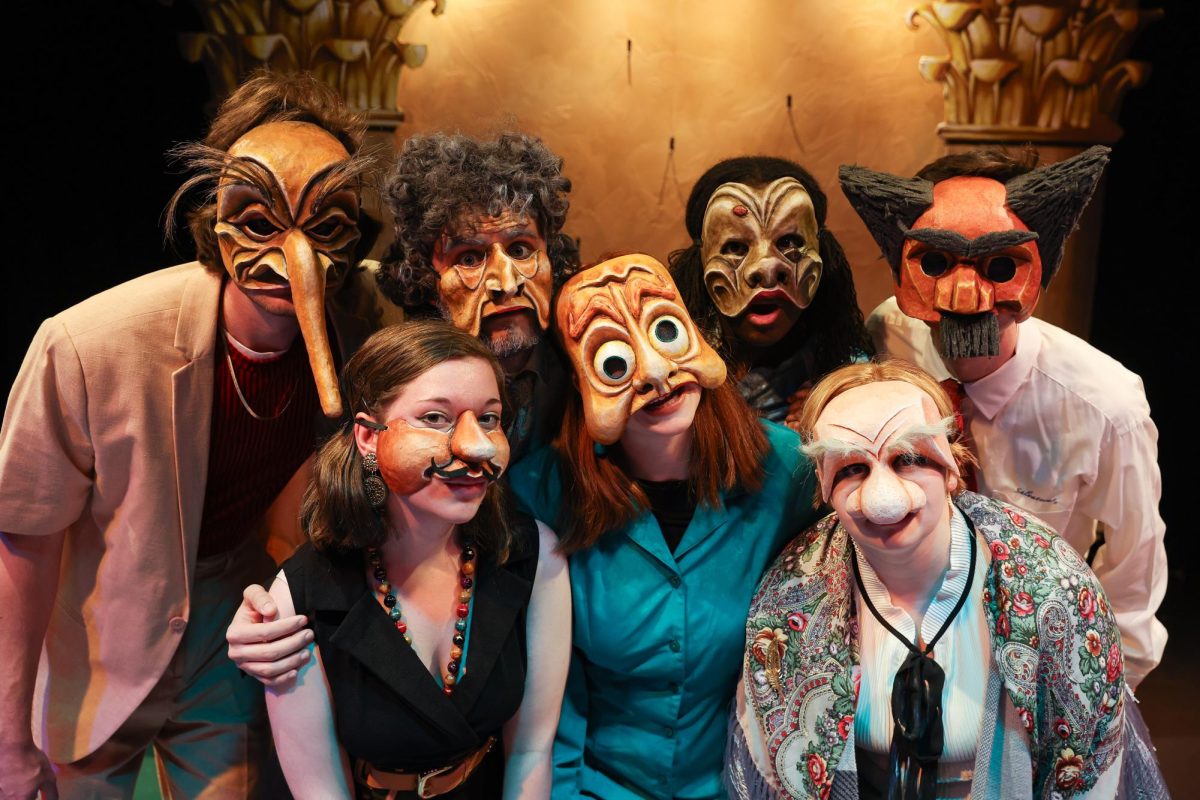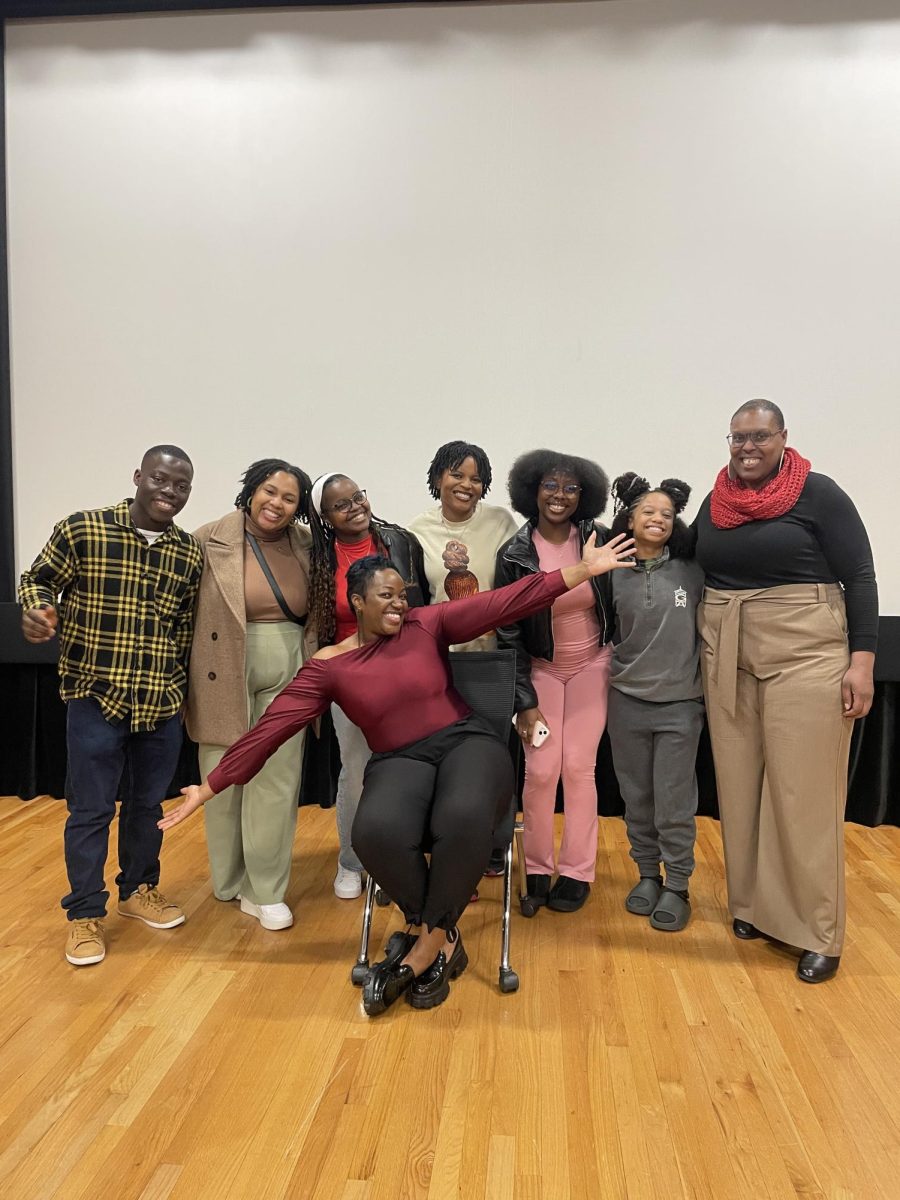On Tuesday, Feb. 20, Furman Theatre debuted the first-ever production of “Screentime: a Modern Commedia.” Written by Professor Margaret Caterisano and directed by Alan Bryson, this play artfully combines the seemingly mundane with humor and eccentricity to tell a story that anyone can relate to.
The play gives us a snapshot into the power dynamic between;
- Arlene, played by Alysha Matthews ‘24,
- Her aunt and boss Dorores, played by Allison Dewberry ‘27,
- Their coworker Zoee, played by Zoee Lawrence ‘25.
In hopes of promoting their PR company, the trio runs a flooring convention for their client, Paddy, played by Seth Milton Jones ‘25. At the hotel where the convention takes place, they meet hotel worker Briggie, played by Houston Hearn ‘27, as well as flooring big shot Clement, played by Jonathan Wood ‘25, and his assistant Celine, played by Paige Hemmer ‘25.
Each character is loveable and relatable in their own way, from Paddy’s endearing naivety to Celine’s girl-crush outer shell that conceals a compassionate heart. The only character we may have trouble liking is Clement, the wannabe-alpha-male personified. The variety in the characters’ attributes allows us to see ourselves in the characters and better relate to the trials they face. Specifically in Arlene, we see the rage that we have all felt at one point as she expresses her frustrations with a lack of boundaries and respect for Dolores.
Amidst the chaos of the flooring convention, a charming relationship develops between Arlene and Briggie. They open up to each other about their hopes and dreams of wanting more than their current realities. To Arlene, Briggie is a source of comfort and an escape from the harsh demands of her aunt. To Briggie, Arlene is like a window to the world outside his hotel lobby, a breath of fresh air and a kindred spirit.
As a commedia dell’arte, the play is interspersed with lazzi, or “comedic physical ‘bits’.” While the concept of lazzi may be unfamiliar to us, the atmosphere created through the warm lighting and the not-quite-sensical action reflects the dreamlike subconscious state where our deepest desires are most prevalent: control, power, and clarity.
Caterisano put it best in her Note from the Playwright in the playbill: “If the Commedia characters feel familiar, they should. They are us.”
At the beginning of each lazzi, the characters don masks that correspond to a stock character, or archetype, dating back to the 16th century. Arlene transforms into Arlecchino, Dolores into Dottore, Zoee into Zanni, Paddy into Pantalone, Briggie into Brighella, Celine into Scapin, and Clement into Capitan.

The use of masks shifts the characters from being complex and unpredictable to larger-than-life archetypes with predictable actions. Their cartooniness, contrary to the common conception, does not detract from their humanness and relevance. Just as it does not surprise us when Capitan lifts a “heavy” barrel over his head only for his audience to discover it is empty, it does not surprise us when Clement tries to flirt with every woman he comes in contact with despite having a wife at home. In a way, the traditional stock characters represent who the modern characters are at their core. When not worn, the masks hang on the back wall of the set, serving as a constant reminder of how little we, as people, have changed since the 16th century.
Despite the time passed, certain issues within the play have recurred to this day. Zoee, for example, becomes a victim of sexual harassment. Where in our current environment, the issue may be kept under wraps; the outcome of this case is voted on by the audience’s applause. “Screentime” envisions a world where we are equipped to handle workplace harassment and are not punished for reporting but applauded for our self-advocacy instead.
Overall, “Screentime” uses a centuries-old art form to reveal what lurks beneath the “masks” we wear everyday, proving that triumphs and new beginnings can only be achieved through discomfort and reckoning with the complexities of our innermost selves.




































